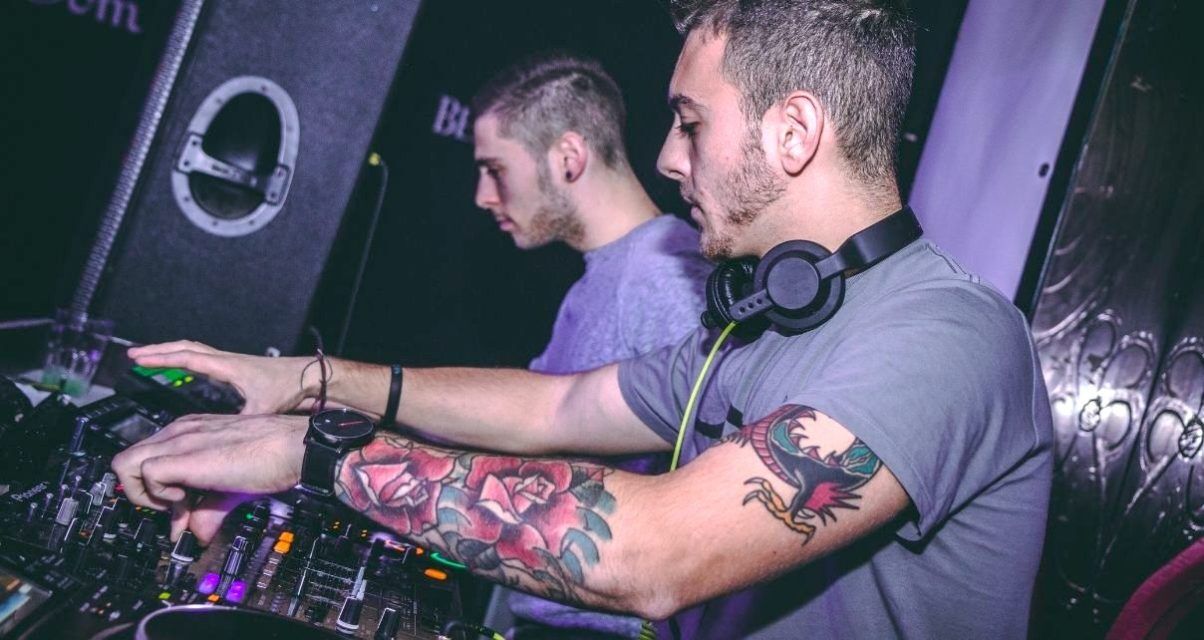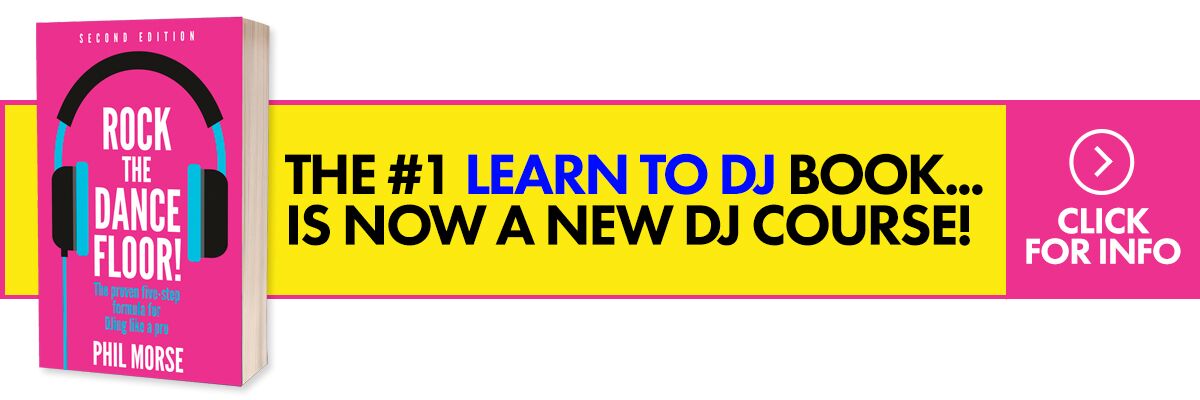DJing is often seen as a “solo” thing, but it needn’t be. Indeed, it can get pretty lonely as a DJ, as many of us know – despite the fun-loving, sociable image DJs often have.
Whether it’s to deal with this loneliness, to get inspired and do something more creative/appealing to the public, or to take some of the work off of you when promoting events, collaborations are cool. Oh, and collaborations can be great fun too!
In this article, I’ll share with you some tips and ideas about successfully collaborating with others, be that DJs, musicians, or MCs/vocalists.
Collaborating with other DJs or DJ/producers
There are lots of ways these kind of collaborations can work. To give you some ideas, you can:
- Hook up with a DJ partner – to play formally as a team, or to promote an event/party where you both get to DJ
- Find a DJ to play back to back with – either in public or just for fun/practise
- Play remotely with other DJs – either sharing livestreams or even playing B2B (there is hardware that can help you do the latter, and it’s apparently coming to the web-based Beatport DJ app, too)
- Do it just for fun – Simply hang out and practise together
Some of the most fun I’ve had as a DJ over the years is just hanging out with other DJs in their studios, playing music. I’ve discovered lots of music this way, and one fun thing you can do is play sets out of each others’ collections – I can guarantee you’ll “re-discover” tracks you’d completely forgotten about this way.
Read this next: How To Play Back To Back DJ Sets (3 B2B Tips For Beginners)
Collaborating with musicians
DJs and musicians have always looked to play together. Whether it’s a percussionist alongside you at club gigs, or a saxophonist or electric violinist at mobile events, or even collaborating with an electronic music producer as a DJ/live duo, there are lots of possibilities.
For instance, you can:
- Form a formal electronic act – with, say, you as a DJ and another person as an electronic producer, to “play live” together
- Join a band as its DJ – lots of bands have done this successfully, and it can bring a whole new aspect to your DJing
- Hook up with instrumentalists and offer a live segment to your shows – often offered by mobile DJs as an “add on” service, where the instrumentalist plays for 20 minutes two or three times throughout the events you are booked to play at
If you’re hooking up with established musicians who are used to playing at live events, as in the last suggestion above, they’ll probably have their own backing tracks they like to play over, and only need you to plug them into your set-up.
But with a bit of extra work, you could come up with a more fluid set where you play off each other and ad lib more – and crowds love to see this kind of thing. Get in touch with people booked to do this at events ahead of time, and see if you can concoct something special together.
Collaborate with vocalists/MCs
Again, this is a great way to make what you do more appealing to audiences, and to start veering into music making. Of course, hip hop grew out of the DJ laying down the beats for the MC to rap over, so if you’re in hip hop or a related genre, you don’t need me to introduce you to this idea – our very own tutor DJ Jazzy Jeff kind of invented all of this in his collaboration with Will Smith back in the day, after all!
But equally, you could be a house DJ who brings in a vocalist to sing certain tracks in your sets, even if it’s just cover versions (ie playing the instrumental while your vocalist does the lyrics live).
The main thing to remember here is to rehearse, and resist the temptation to just hand the mic to anyone who says “I’m an MC, can I have the mic?” – this rarely ends well!
One thing you can’t always practise is how to deal with audio feedback at gigs where there’s a live mic.
A good piece of advice here is to keep the mic away from speakers generally, and if there’s a setting on the mixer to “cut mic to booth” (meaning the microphone isn’t blasting out of the DJ booth speakers, assuming the singer is with you in the booth), to consider using it, as long as the singer/MC can handle that.
General collaboration tips
It can be weird working with other people if you’re used to working alone, but the main point is to be reliable, friendly, patient, and to try to have fun – after all, that has to be a big part of why we do this…if we are to succeed.
It’s doubly important to practise before the event if you’re collaborating in order to perform in public, because while it may be possible to an extent to “wing” DJ gigs, once others are involved, the chances of messing up badly in public increase a lot if you’re not prepared.
If you’re planning to play a formal “set” with a musician or vocalist as part of a DJ performance, do consider splitting it into two or three shorter sets – it’ll be less strain on you, and audiences tend to prefer it this way.
And please remember to record what you do, and listen back to spot easy fixes and ways to improve. Don’t be scared to ask promoters, your audience members and anyone else obvious what they thought about your work with others – their feedback can help you improve much quicker.
Get the pro skills needed to collaborate with others: The Complete DJ Course
Finally…
Collaborating with others is, at the end of the day, fun. I’ve personally had formal DJ partnerships, played B2B (“back to back”) with others, held down residencies, promoted events with other DJs, and DJed with singers and musicians – and they’ve been some of my most memorable experiences.
Don’t be scared to be the one to ask to get things going, and even if it’s only every now and then, do consider having a go at this – I reckon you’ll be glad you did.


